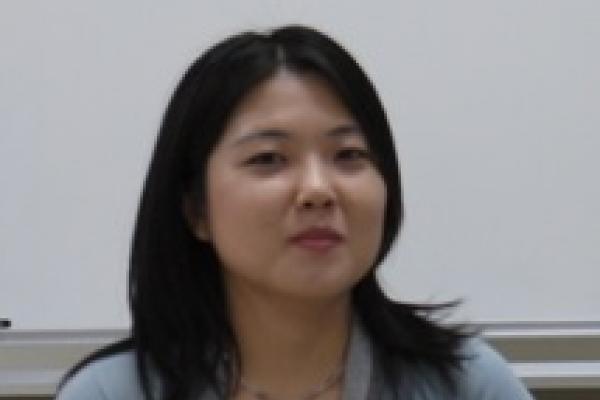
Associate Professor Sachiko Kiyama
Flyer: Sachiko Kiyama Flyer.pdf
Abstract: Some East and South-East Asian languages have sentence-final particles (SFPs) to yield various discourse functions. Particularly in Japanese, SFPs such as -ne and -yo have no obvious effect on the truth conditions of a sentence, but they encompass a diverse range of usages, from typical to atypical, according to the context and the interpersonal relationships in the specific situation. The most frequent particle, -ne, is typically used after addressee-oriented propositions for information sharing, while another frequent particle, -yo, is typically used after addresser-oriented propositions to elicit a sense of strength. In this talk, she will introduce a neurolinguistic study utilizing event-related potentials (ERP) from electroencephalography (EEG) data (Kiyama, et al., 2018, Journal of Neurolinguistics), which sheds light on individual differences in understanding of the addressee-oriented -ne based on their ability to infer the mental states of others). The result plausibly reflects low-ability mentalizers' stronger sense of strangeness toward atypical -ne usage. While high-ability mentalizers may aptly perceive others' attitudes via their various usages of -ne, low-ability mentalizers seem to adopt a more stereotypical understanding. Based on the finding, she argues that native Japanese speakers with low mentalizing ability have the greater degree of difficulty in using SFPs to establish a smooth regulation of interpersonal distance during social encounters.
Bio: Professor Sachiko Kiyama received her BA from Waseda University, MA from Tokyo University of Foreign Studies, and PhD from Reitaku University, Japan, and has taught English and linguistics at Mie University and Tohoku University, respectively. Prior to these teaching positions, she also held research appointments at Nagoya University and the National Center for Geriatrics and Gerontology, Japan. She is currently Associate Professor at the Department of Linguistics, Tohoku University. Dr. Kiyama’s research has centered on the uses of sentence final particles to modulate interpersonal distances, utilizing neurolinguistic methodologies, particularly, with the uses of ERP and fMRI. She has published a number of articles in journals such as Journal of Neurolinguistics, Frontiers in Human Neuroscience, Language, and Journal of Experimental Psychology: Learning, Memory, and Cognition.
This post-BEAL Forum event is organized by the Graduate Students of East Asian Languages and Literatures (GREALL), Institute for Japanese Studies, Institute for Chinese Studies. Co-sponsors: East Asian Studies Center; Graduate Association of Chinese Linguistics (GACL), Graduate Students of East Asian Languages and Literatures (GREALL); Department of East Asian Languages and Literatures; Department of Linguistics, and other OSU units. This event is sponsored in part by a Council on Student Affairs (CSA) Strategic Programming Grant, a grant from Confucius Institute Headquarters, and U.S. Department of Education Title VI grant for The Ohio State University East Asian Studies Center.
* * * * * *

Buckeye East Asian Linguistics Forum 3 (BEAL Forum 3) provides a platform primarily for students to articulate and exchange ideas on their research findings with forum participants. Both graduate and undergraduate students are welcome to submit abstracts. It is a one-day event with keynote lectures and poster sessions. The BEAL Forum, a biennial event, is an excellent opportunity to present one’s research in a public arena and to receive comments individually. With the exception of keynote lectures, all are poster presentations, thus giving participants ample time for discussion. The event is intended to showcase regional research activities in East Asian linguistics. BEAL Forum 3, to be held on Monday, 22 October 2018, is free and open to the public.
BEAL Forum website: http://u.osu.edu/beal/beal-forum/
Organizers:
2018 BEAL Forum Organizing Committee
Seojin Yang and Lindsey Stirek (graduate student co-chairs)
Mineharu Nakayama, Marjorie K.M. Chan, and Zhiguo Xie (faculty co-chairs)
Sponsors:
Institute for Chinese Studies, Institute for Japanese Studies
Co-Sponsors:
East Asian Studies Center; Graduate Association of Chinese Linguistics (GACL), Graduate Students of East Asian Languages and Literatures (GREALL); Department of East Asian Languages and Literatures; Department of Linguistics, and other OSU units. This event is sponsored in part by a Council on Student Affairs (CSA) Strategic Programming Grant, a grant from Confucius Institute Headquarters, and U.S. Department of Education Title VI grant for The Ohio State University East Asian Studies Center.
